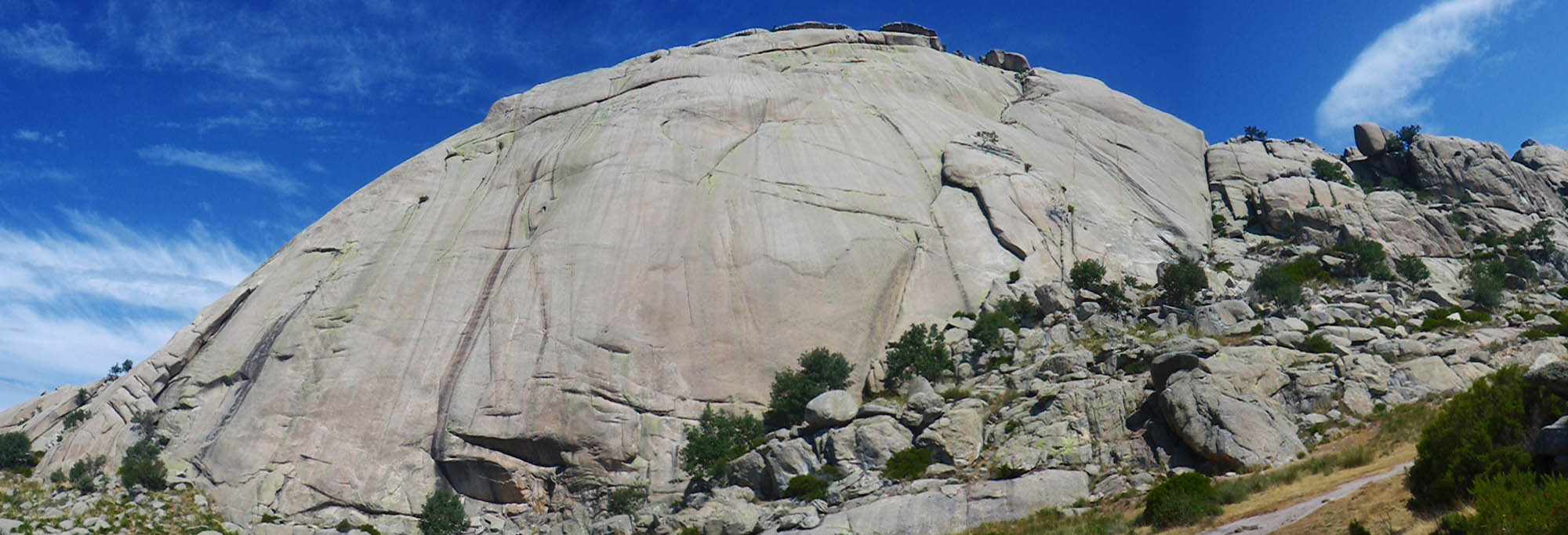Yelmo

Welcome to Yelmo, an easy to use continental ice sheet model. Yelmo is a 3D ice-sheet-shelf model solving for the coupled dynamics and thermodynamics of the ice sheet system. Yelmo can be used for idealized simulations, stand-alone ice sheet simulations and fully coupled ice-sheet and climate simulations.
Yelmo has been designed to operate as a stand-alone model or to be easily plugged in as a module in another program. The key to its flexibility is that no variables are defined globally and parameters are defined according to the domain being modeled. In this way, all variables and calculations are store in an object that entirely represents the model domain.
The physics and design of Yelmo are described in the following article:
Robinson, A., Alvarez-Solas, J., Montoya, M., Goelzer, H., Greve, R., and Ritz, C.: Description and validation of the ice-sheet model Yelmo (version 1.0), Geosci. Model Dev., 13, 2805–2823, https://doi.org/10.5194/gmd-13-2805-2020, 2020.
The Yelmo code repository can be found here: https://github.com/palma-ice/yelmo
General model structure - classes and usage
yelmo_class
The Yelmo class defines all data related to a model domain, such as Greenland or Antarctica. As seen below in the yelmo_class defintion, the 'class' is simply a user-defined Fortran type that contains additional types representing various parameters, variables or sets of module variables.
type yelmo_class
type(yelmo_param_class) :: par ! General domain parameters
type(ygrid_class) :: grd ! Grid definition
type(ytopo_class) :: tpo ! Topography variables
type(ydyn_class) :: dyn ! Dynamics variables
type(ymat_class) :: mat ! Material variables
type(ytherm_class) :: thrm ! Thermodynamics variables
type(ybound_class) :: bnd ! Boundary variables to drive model
type(ydata_class) :: dta ! Data variables for comparison
type(yregions_class) :: reg ! Regionally aggregated variables
end type
Likewise the module variables are defined in a similar way, e.g. ytopo_class that defines variables and parameters associated with the topography:
type ytopo_class
type(ytopo_param_class) :: par ! Parameters
type(ytopo_state_class) :: now ! Variables
end type
Submodules such as ytopo_class include parameter definitions relevant to topography calculations, as well as all variables that define the state of the domain being modeled.
Example model domain intialization
The below code snippet shows an example of how to initialize an instance of Yelmo inside of a program, run the model forward in time and then terminate the instance.
! === Initialize ice sheet model =====
! Initialize Yelmo objects (multiple yelmo objects can be initialized if needed)
! In this case `yelmo1` is the Yelmo object to initialize and `path_par` is the
! path to the parameter file to load for the configuration information. This
! command will also initialize the domain grid and load initial topographic
! variables.
call yelmo_init(yelmo1,filename=path_par,grid_def="file",time=time_init)
! === Load initial boundary conditions for current time and yelmo state =====
! These variables can be loaded from a file, or passed from another
! component being simulated. Yelmo does not care about the source,
! it only needs all variables in the `bnd` class to be populated.
! ybound: z_bed, z_sl, H_sed, H_w, smb, T_srf, bmb_shlf, T_shlf, Q_geo
yelmo1%bnd%z_bed = [2D array]
yelmo1%bnd%z_sl = [2D array]
yelmo1%bnd%H_sed = [2D array]
yelmo1%bnd%H_w = [2D array]
yelmo1%bnd%smb = [2D array]
yelmo1%bnd%T_srf = [2D array]
yelmo1%bnd%bmb_shlf = [2D array]
yelmo1%bnd%T_shlf = [2D array]
yelmo1%bnd%Q_geo = [2D array]
! Print summary of initial boundary conditions
call yelmo_print_bound(yelmo1%bnd)
! Next, initialize the state variables (dyn,therm,mat)
! (in this case, initialize temps with robin method)
call yelmo_init_state(yelmo1,time=time_init,thrm_method="robin")
! Run yelmo for eg 100.0 years with constant boundary conditions and topo
! to equilibrate thermodynamics and dynamics
! (impose a constant, small dt=1yr to reduce possibility for instabilities)
call yelmo_update_equil(yelmo1,time,time_tot=100.0,topo_fixed=.FALSE.,dt=1.0)
! == YELMO INITIALIZATION COMPLETE ==
! Note: the above routines `yelmo_init_state` and `yelmo_update_equil`
! are optional, if the user prefers another way to initialize the state variables.
! == Start time looping and run the model ==
! Advance timesteps
do n = 1, ntot
! Get current time
time = time_init + n*dt
! Update the Yelmo ice sheet
call yelmo_update(yelmo1,time)
! Here you may be updating `yelmo1%bnd` variables to drive the model transiently.
end do
! == Finalize Yelmo instance ==
call yelmo_end(yelmo1,time=time)
That's it!
See Getting started to see how to get the code, compile a test program and run simulations.